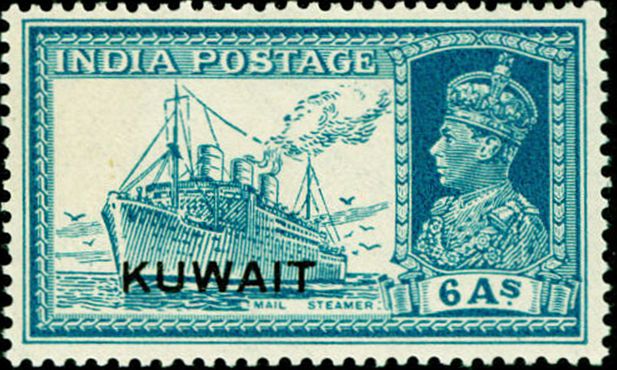Kuwait, officially the State of Kuwait, is a country in Eastern Arabia. In 1613, the town of Kuwait was founded in modern-day Kuwait City. Administratively, it was a sheikhdom, ruled by local sheikhs. In the eighteenth century, Kuwait prospered and rapidly became the principal commercial center for the transit of goods between India, Muscat, Baghdad and Arabian Peninsula. By the mid 1700s, Kuwait had already established itself as the major trading route from the Persian Gulf to Aleppo.
In the 1890s, Kuwait was threatened by the Ottoman Empire. In a bid to address its security issues, ruler Sheikh Mubarak Al Sabah signed an agreement with the British government in India, subsequently known as the Anglo-Kuwaiti Agreement of 1899 and became a British protectorate. This gave Britain exclusivity of access and trade with Kuwait, and excluded Iraq to the north from a port on the Persian Gulf. The Sheikhdom of Kuwait remained a British protectorate from 1899 to 1961.
Following the Kuwait–Najd War of 1919–20, Ibn Saud imposed a trade blockade against Kuwait from the years 1923 until 1937. The goal of the Saudi economic and military attacks on Kuwait was to annex as much of Kuwait’s territory as possible. At the Uqair conference in 1922, the boundaries of Kuwait and Najd were set; as a result of British interference, Kuwait had no representative at the Uqair conference. Ibn Saud persuaded Sir Percy Cox to give him two-thirds of Kuwait’s territory. More than half of Kuwait was lost due to Uqair. After the Uqair conference, Kuwait was still subjected to a Saudi economic blockade and intermittent Saudi raiding.
In 1938 the Kuwaiti Legislative Council unanimously approved a request for Kuwait’s reintegration with Iraq. A year later an armed uprising which had raised the integration banner as its objective was put down by the British.
With the end of the world war, and increasing need for oil across the world, Kuwait experienced a period of prosperity driven by oil and its liberal atmosphere. The period of 1946–1982 is often termed “the golden period of Kuwait” by western academics. By 1952, the country became the largest oil exporter in the Persian Gulf region.
In June 1961, Kuwait became independent with the end of the British protectorate and the Sheikh Abdullah Al-Salim Al-Sabah became Emir of Kuwait. Under the terms of the newly drafted Constitution, Kuwait held its first parliamentary elections in 1963. Kuwait was the first of the Arab states of the Persian Gulf to establish a constitution and parliament.
In the 1960s and 1970s, Kuwait was considered by some as the most developed country in the region and embraced liberal and Western attitudes throughout the 1960s and 1970s. For example, most Kuwaiti women did not wear the hijab in the 1960s and 70s and Kuwait was a regional hub of science and technology.
In August 1990, Iraqi forces invaded and annexed Kuwait. After a series of failed diplomatic negotiations, the United States led a coalition to remove the Iraqi forces from Kuwait, in what became known as the Gulf War. On 26 February 1991, the coalition succeeded in driving out the Iraqi forces. In March 2003, Kuwait became the springboard for the US-led invasion of Iraq.








